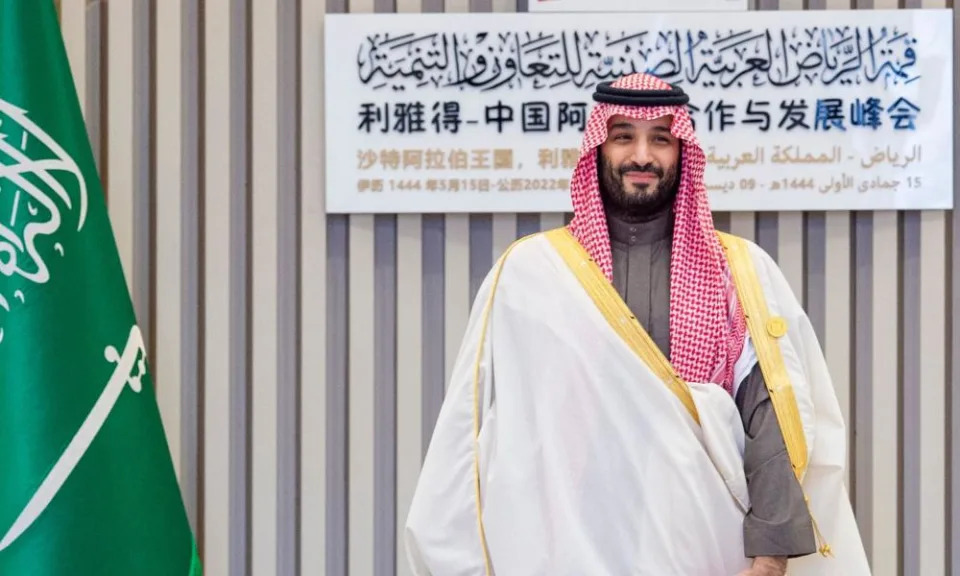Martin Chulov Middle East correspondent
Wed, 1 February 2023

Photograph: AFP/Getty Images
The rate of executions carried out by Saudi Arabia has almost doubled under the rule of the de facto leader, Mohammed bin Salman, with the past six years being among the bloodiest in the Kingdom’s modern history, a report has found.
Rates of capital punishment are at historically high levels, despite a push to modernise with widespread reforms and a semblance of individual liberties. Activist groups say the price of change has been high, with a total crackdown on the crown prince’s political opponents and zero tolerance for dissent.
Pledges by Prince Mohammed – who has consolidated extraordinary powers across the Kingdom’s business spheres, industrialists and elite families – to curb executions have not been kept, the new data shows, with each of the six years that he has led the country resulting in more state-sanctioned deaths than any other year in recent history.
Between 2015 and 2022, an average of 129 executions were carried out each year. The figure represents an 82% increase on the period 2010-14. Last year, 147 people were executed – 90 of them for crimes that were considered to be nonviolent.
On 12 March last year, up to 81 men were put to death – an all-time high number of executions, in what activists believe was a pointed message from the Saudi leadership to dissenters, among them tribal groups in the country’s eastern provinces.
The report – prepared by two organisations, the European Saudi Organisation for Human Rights and Reprieve – says: “Saudi Arabia’s application of the death penalty is riddled with discrimination and injustice and the Saudi regime has been lying to the international community about its use.
“The death penalty is routinely used for non-lethal offences and to silence dissidents and protesters, despite promises by the crown prince that executions would only be used for murder,” it added. “Fair trial violations and torture are endemic in death penalty cases, including torture of child defendants.”
The kingdom is considered one of the leading exponents of capital punishment in the region, with only Iran thought to execute more people a year. In the last six years there have also been slight increases in numbers of executions of children, women and foreign nationals, as well as mass executions and executions for non-lethal offences. A moratorium on capital punishment for drug crimes was recently lifted.
Prince Mohammed has introduced extensive reforms across Saudi workplaces and society, giving women more access to gainful employment and changing social norms that had, for the four decades that followed the Islamic revolution in Iran, kept genders strictly segregated and enforced an ultra hardline interpretation of Islam.
But while there was already little room for dissent under the Kingdom’s absolute monarchy, Prince Mohammed has taken intolerance to new levels, with political and business rivals subject to mass detention and financial shakedowns, and family members of officials that have fled the country being detained for use as leverage to get them back to the kingdom.
The death penalty is seen as one of the new regime’s more visceral tools.
“It’s literally a sword that hangs over all of us, any one who dares to defy him,” said one Saudi royal in exile in Europe. “It’s either that, or being disappeared. Think Gaddafi. Think Saddam. That’s where we are now.”


No comments:
Post a Comment